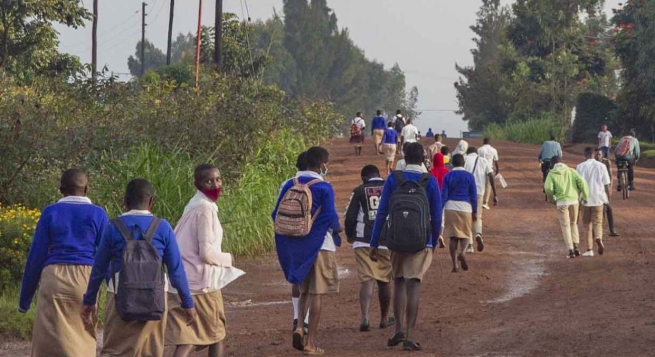The increase in teenage pregnancy rates in Rwanda has been growing exponentially in recent years, beginning to represent a major obstacle to social and economic development, especially among the population’s poorer segments. An unmarried young woman who becomes pregnant (as a result of consensual or non-consensual intercourse) is excluded from society as an unacceptable situation in Rwandan culture. Girls thus find themselves alone, vulnerable, and facing financial, social, and health difficulties.
Also in such a state are boys in vulnerable situations, a phenomenon common to almost all urban centers in the country, caused most of the time by difficult family situations (abuse and violence) and extreme poverty. The condition of these children is characterized by the continuous violation of their rights as regards education, health, protection, food, and being unable to live with their parents.
Founded by the Salesian community at the end of the terrible genocide in 1994 to help poor and orphaned young survivors acquire functional skills to obtain employment, the Vocational Training Center in Rango offers courses in construction, carpentry, welding, and sewing. The classes are composed mainly of young and very young single mothers aged 17 to 25 in a situation of poverty and abandonment.
According to Fr. Remy Nsengiyumva, the Salesian parish priest in Rango, it is clear from the context and needs assessment that very many girls drop out of school due to poverty and face an unwanted pregnancy. To help them and their children, the Salesians have initiated a two-year tailoring training program, coupled with entrepreneurial training and accompanied by a basic tool kit to start a small income-generating business.
Through this project, 40 young people each received a sewing machine and some essential materials to start a simple tailoring or sewing workshop that could provide a minimum economic income for their small families.
In addition, thanks to the "Ejo heza" program, the Sons of Don Bosco of Rango were able to carry on the identification activities of about 80 children between the ages of 9 and 17, 40 percent of whom lived on the street and 60 percent spent their daily lives on the street and returned to their families at night.
The Salesians' project was able to achieve excellent results, involving 120 children and supporting them with various daily activities, including those of social workers - to understand why they ran away from home and establish a relationship with their families -, literacy and training paths, and distribution of clothes, hygiene kits, and food. In addition, peer groups were organized to support them in building relationships and entertaining them through sports and music. The Salesians were very happy with the outcome of the approximately 16-month journey that resulted in all children returning to school (89 enrolled in elementary school, 20 in secondary school, and 11 in the vocational training center) and agreeing to return to their families.
For more information, visit: www.missionidonbosco.org


